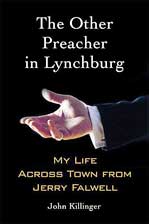 It was inevitable that I would get around to reading this book eventually. John Humphrys seems to come at doubt from the opposite side from me - he seems to want to be an atheist, but can't quite get rid of the nagging doubt that "there's more to life than this"...
It was inevitable that I would get around to reading this book eventually. John Humphrys seems to come at doubt from the opposite side from me - he seems to want to be an atheist, but can't quite get rid of the nagging doubt that "there's more to life than this"...It is a reasonably interesting book, if - ultimately - pointless. You see, the book begins and ends with the point I made above. And passes through that same point several times. It doesn't actually go anywhere. Along the way we get to see Humphrys's reasons for his disillusionment with the Anglican church - yes, this is a very Anglican book - and his frustrations with some of the more militant atheists (Richard Dawkins and Christopher Hitchens are mentioned more times than are probably necessary, although few other atheists are named), but there's no sense that Humphrys was in any way changed by the research he did or the people he spoke to.
In the end he semi-concludes that religion is probably a good thing, even if there probably is no god. Although maybe there is. Frustrating.
So I don't exactly recommend this book. Unless you really do have nothing better to do with your time. There are far more interesting books regarding the theist/atheist debate out there.
